Aimee Willmott interview: Longevity not medals keep her in fast lane for Tokyo Olympics
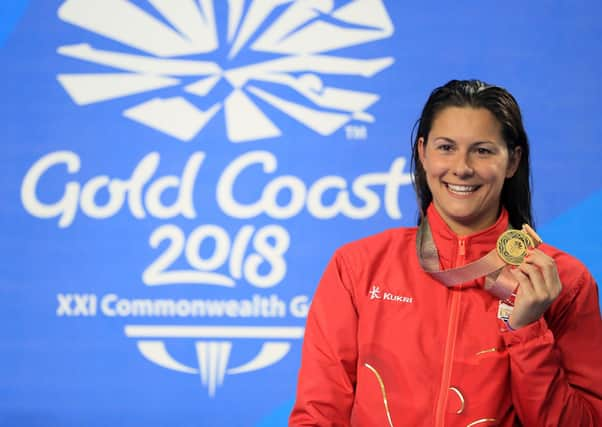

For nine years after she made her Olympic debut in London as a wide-eyed teenager, Willmott will make a third appearance in the sporting pinnacle in the Far East this summer as the British squad’s elder stateswoman.
There might not be the medals from the global stage that some of her team-mates can boast and that she now admits she often chides herself for not possessing.
Advertisement
Hide AdAdvertisement
Hide AdBut there is much to be said for being a consistently strong performer over the best part of a decade and for that Willmott can be satisfied with her life’s work.
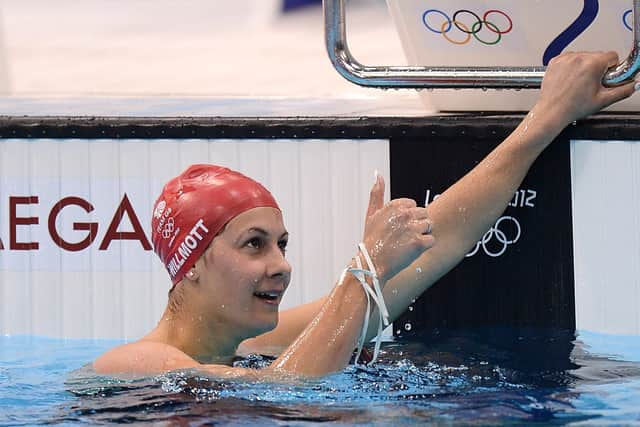

The Olympics is littered with stories of overnight sensations who emerge from nowhere to win a medal and then disappear from whence they came.
Should a bronze medal from one Games be considered a greater accomplishment than the ability to keep yourself at the top of your game for a decade by making three Olympic squads?
“You go through phases in your career where you think ‘I’ve never won this medal’, ‘I’ve never done this’,” she tells The Yorkshire Post in answer to that question.
Advertisement
Hide AdAdvertisement
Hide Ad“Everyone aspires when they’re younger to win an Olympic medal, to break a world record, because you’re so ambitious.
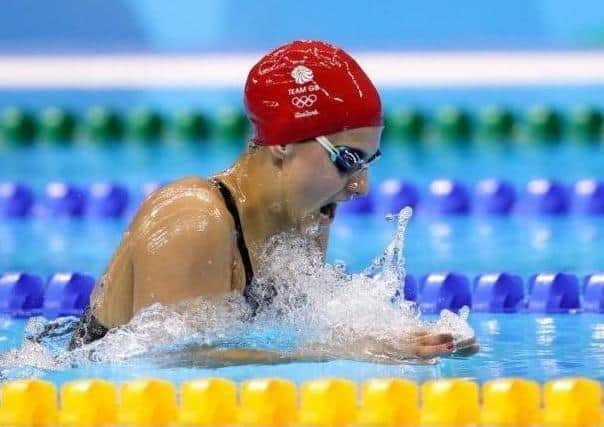

“And there have definitely been times when I’ve wondered am I ever going to be that good? Or am I just going to be someone who makes the teams and is just there?
“As I’ve got a bit older I’ve understood that that is still an amazing achievement. Yes, I’ve not won an Olympic medal, but I’ve made an Olympic final, a world final, I’ve won European and Commonwealth medals.
“I’ve had so many sessions where I’ve spoken to youngsters thinking that was me once upon a time, and yet I went on to do X, Y and Z.
Advertisement
Hide AdAdvertisement
Hide Ad“That reflection of what I’ve achieved does make me feel quite proud. It’s an honour to still be here doing what I’m good at, that there’s been plenty of people who have come and gone, but I’m still here.”
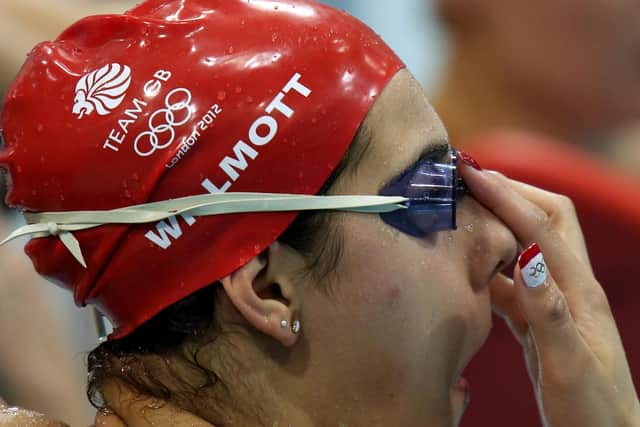

Her career bridges two golden eras of British swimming; the Rebecca Adlington years from 2008 to 2012 and then the Adam Peaty reign from 2016 to the present day.
It is a chapter in British Swimming history in which Willmott – the 400m individual medley specialist from Ormesby in Middlesbrough – has seen a sea change in mentality, from the happy-to-be-there bumper squad of 2012 to the medal-winning focus in Rio and Tokyo.
“For me, it feels a totally different vibe from London to now,” observes Willmott, who chose to be a medley swimmer because she wanted to work on her weaknesses.
Advertisement
Hide AdAdvertisement
Hide Ad“It’ll be strange knowing I came from a massive team in London where just making the team was the pinnacle of a lot of those people’s career, to where you’re wanting to make the team to do a job, which is the current era of British Swimming.
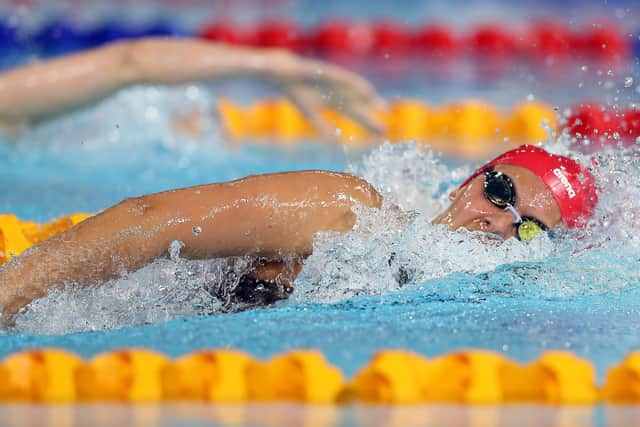

“It’s more exciting to be part of a team that really wants to swim well, where second best isn’t good enough.
“I’ve seen that change over the last nine years and to still be at the top, hanging on, when there’s loads of youngsters coming through, it does make me feel quite proud.”
She is still ‘hanging on’ as she puts it, because a move to the British training squad up in Stirling four years ago reignited her passion for the sport, and made her realise that if she wanted to prolong her career she had to change her approach.
Advertisement
Hide AdAdvertisement
Hide AdWillmott was coming off a year in which she made the final of the 400m individual medley at the Rio Olympics, thinking that would be her final Games.
“I remember people would say ‘what about Tokyo?’ and I’d be like you’ve got no chance, there’s no way I’ll still be swimming at 27,” says Willmott, when people were expecting the Games to be held in 2020 before the coronavirus pandemic pushed them back a year.
“Looking back now I can laugh about it. I did genuinely think I would go to the Gold Coast (2018 Commonwealth Games) and retire, but I moved to Stirling and fell in love with the sport again.
“The training wasn’t as difficult as it had been, it was a different group of athletes that was at a higher level so I was around a mature group. It just became a little easier and a little more enjoyable, so every year I’d just think I’ll go back for one more year and see what happens.
Advertisement
Hide AdAdvertisement
Hide Ad“The people at Stirling have helped me prolong my career basically through enjoyment.”
The subtle changes to her routine that have ensured she remains as fast as anyone in Britain over the the 400m medley distance – she has been a podium finisher every year in British races since 2012 – is just purely listening to her body.
“I have definitely learned to swim a little bit smarter,” says Willmott, who secured her spot at a third Olympics at the British trials last month.
“When I was a youngster I did thousands and thousands of metres, I would work hard every session, I would be exhausted pretty much 24/7.
Advertisement
Hide AdAdvertisement
Hide Ad“Although the fatigue is still the same, it’s now about finding different ways to allow my body to cope with the same level of demand and get the same output without killing myself in terms of input. That’s what I’ve learned most since moving to Stirling and it’s the reason I’m still here.
“If I’d have been doing the volumes that I was when I was 16/17, my body wouldn’t have coped and mentally I wouldn’t have lasted.
“The working smarter approach has helped me as I’ve got older. You almost appreciate the small skill elements; the way you did it as a youngster, finding ways to do it better now. You’re always learning and finding ways to develop, rather than just getting in the pool and swimming as fast as you can.”
Willmott’s aim for her final Olympics is to go out and enjoy it. No targets, no pressure. “I don’t want to end my career with a feeling of disappointment,” she says. After that, at the age of 28, it will finally be time for something else. She has already started the process, taking the role of athlete representative on the Commonwealth Games England board for next year’s Games in Birmingham. The Commonwealths are close to her heart given she was a multiple medallist in Glasgow and a champion on the Gold Coast.
Advertisement
Hide AdAdvertisement
Hide AdShe also has a company with her father Stuart, himself a former Olympian and medley swimmer, who competed in the Los Angeles Olympic in 1984.
“Through Willmott Swim Skills I want to visit more clubs, see more swimmers, inspire more children,” she says.
“Me and dad go along and share our stories of Games as a swimmer and as a parent and teach what we know as a medley swimmer to the next generation.
“The pandemic has been a tough time for swimming; people in and out of the pool. It’s not just learning a sport to be the best, swimming is actually a life skill and could save someone’s life.”
It has certainly defined Willmott’s.
Advertisement
Hide AdAdvertisement
Hide AdSupport The Yorkshire Post and become a subscriber today. Your subscription will help us to continue to bring quality news to the people of Yorkshire. In return, you’ll see fewer ads on site, get free access to our app and receive exclusive members-only offers. Click HERE to subscribe.
Comment Guidelines
National World encourages reader discussion on our stories. User feedback, insights and back-and-forth exchanges add a rich layer of context to reporting. Please review our Community Guidelines before commenting.